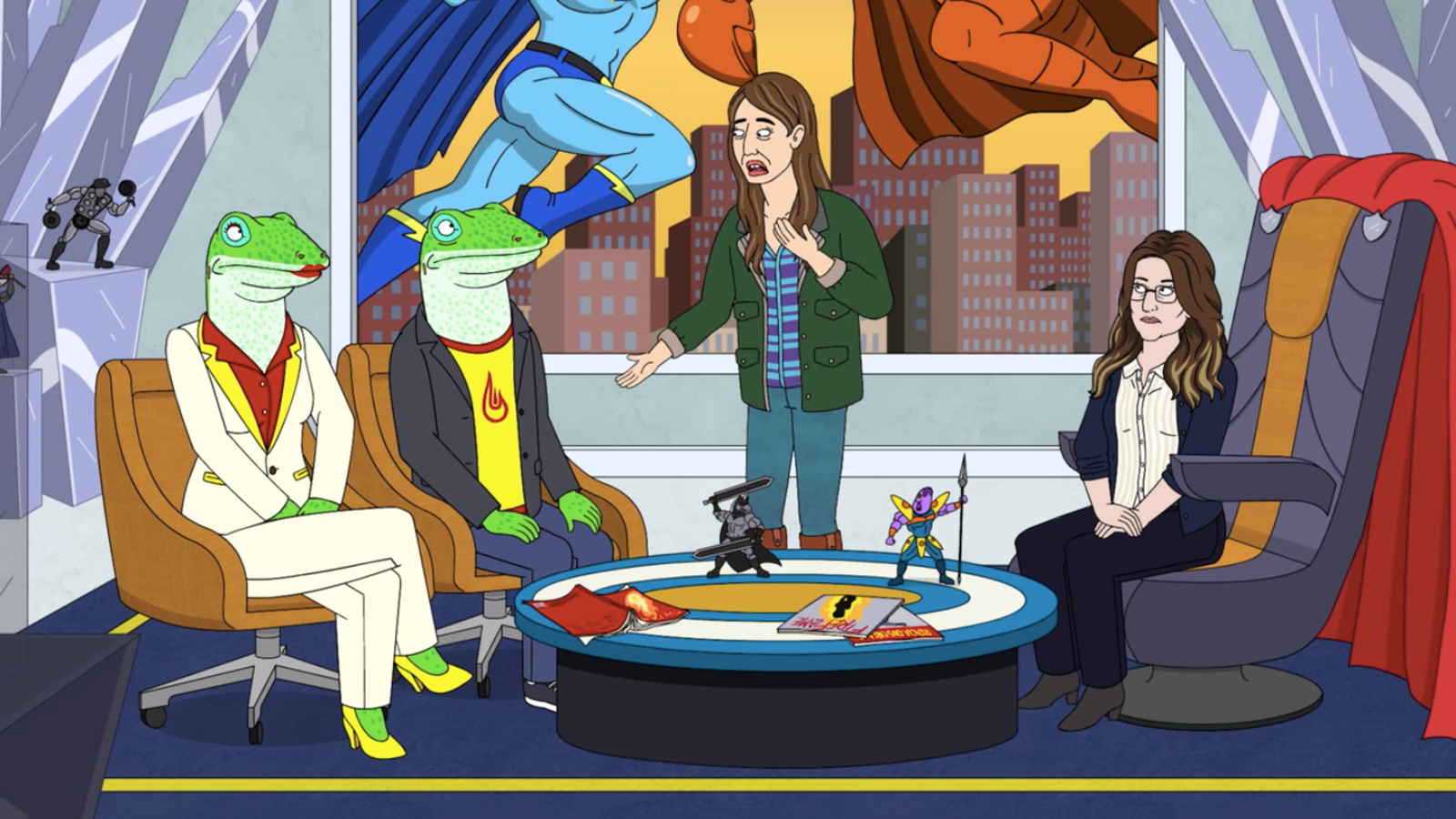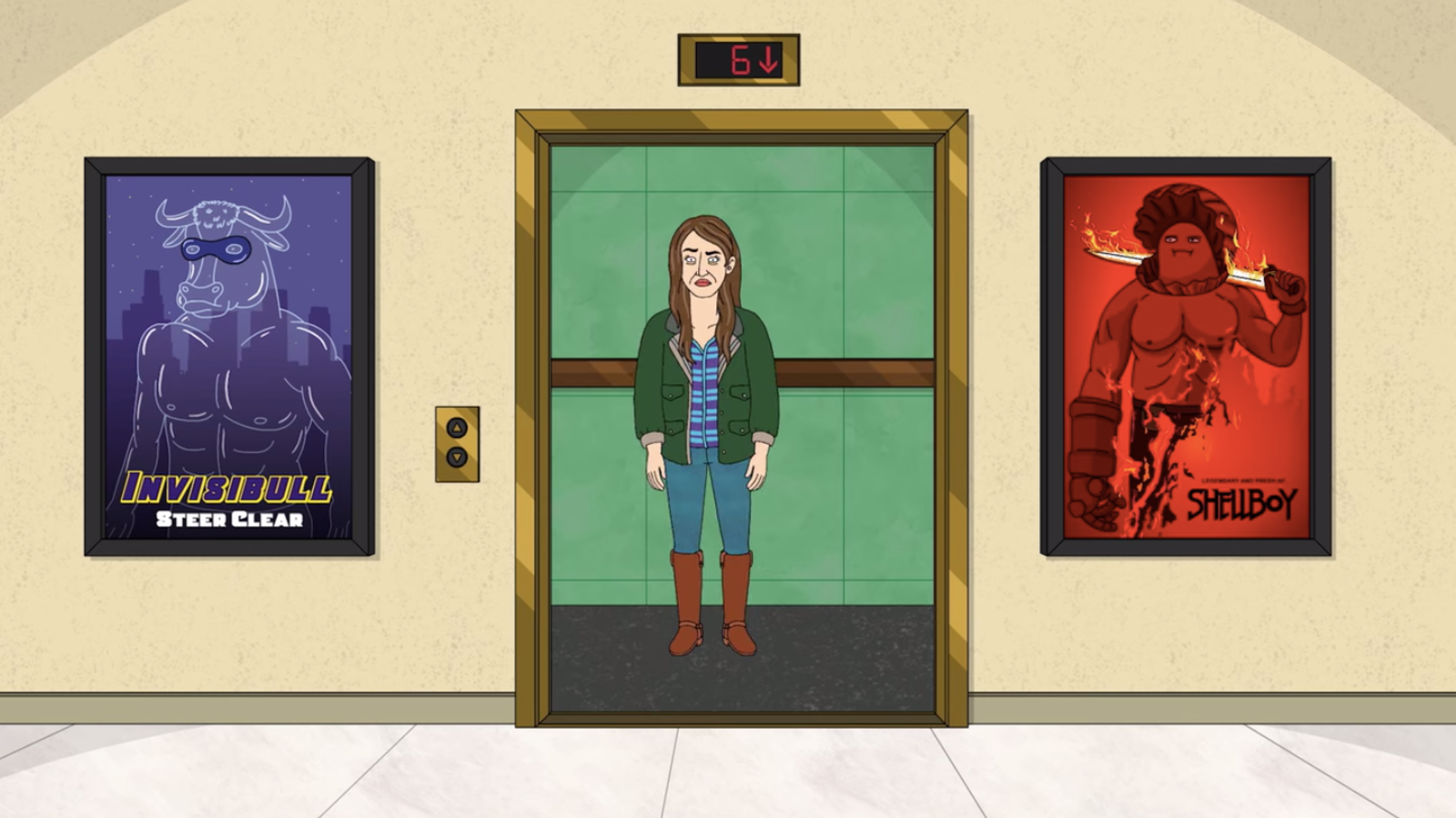WARNING: The following contains mild spoilers for the first half of BoJack Horseman Season 6, streaming now on Netflix.
BoJack Horseman always features plenty of entertainment industry in-jokes. With so much debate about the role of superhero movies in real-life Hollywood, it's only natural that, in the first half of the show's sixth and final season, we get a look at them in Hollywoo.
There are a number of references to superhero films throughout the season. The movie memorabilia collection in the season premiere, "A Horse Walks Into Rehab," includes the helmet of Throg, implying the Thor franchise in BoJack's world is centered around Marvel's Frog of Thunder. WhiteWhale's corporate video in "Feel-Good Story" is credited to Brad Bird, a joke about the common Objectivist readings of The Incredibles and some of his other films. "A Little Uneven, Is All" contains a dig at the Deadpool franchise, when Todd says, "Assistants are like Deadpool movies. I couldn't just stop at one, even though I probably should have. Now I have 12!"
However, it's the midseason finale, "A Quick One, While He's Away," that's most focused on satirizing the business of superhero movies. The episode avoids the main cast of the show entirely, focusing on a number of side characters (Hollyhock, Gina Cazador, Kelsey Jannings) that BoJack has hurt in the past, as well as a pair of reporters investigating the death of Sarah Lynn.
Since she was fired from Secretariat for secretly breaking into the Nixon Library in Season 2, Kelsey's career has gone down the toilet. BoJack, who came up with the plan for the break-in in the first place, kept booking roles, but women in Hollywoo just don't receive the same opportunities, and Kelsey has been reduced to making glorified advertisements or, rather, "immersive product placement journeys" for Chicken 4 Dayz.
She finally gets a major offer to direct Fire Flame, a superhero movie with a "twist" -- the "twist" being that the hero is a woman. That's pretty much the only type of movie that studios want to give female directors, and how much they even want "directors" is questionable; before her job interview, Kelsey is warned, "They don't want your take, they want you, as a woman, to tell them their take."
In the interview, one of the studio executives claims, "I've been saying for years: 'As soon as we run out of popular male characters and given them each two sequels, we have to make a movie about Fire Flame!'" This is clearly making fun of how long it took Marvel and other studios to finally begin making films starring female superheroes. The standees, posters and action figures in the interview scene offer glimpses of what other superheroes are popular in Hollywoo, notably Shellboy and an animal version of The Punisher.
Beyond just making fun of superhero movies, this episode is satirizing the film industry's general ideas of feminism. Kelsey is expected to parrot back to the executives a "yaas queen" brand of empowerment fantasy. After her interview, however, Kelsey returns to the studio to point out how unrelatable these fantasies can be. Kelsey knows that when women act heroically in real life, they're not celebrated the same way as male heroes, and often end up punished for doing the right thing. She argues you can't just write a female superhero story the same way as you would a male one because you need to address the differences in how society treats real female heroism.
Kelsey's darker, more realistic second pitch surprising goes over well, showing that the studio system is occasionally amenable to genuine vision and honest progressiveness (they even accept her pitch to make Fire Flame gay!). Getting such vision into superhero movies, however, is still a challenge.


